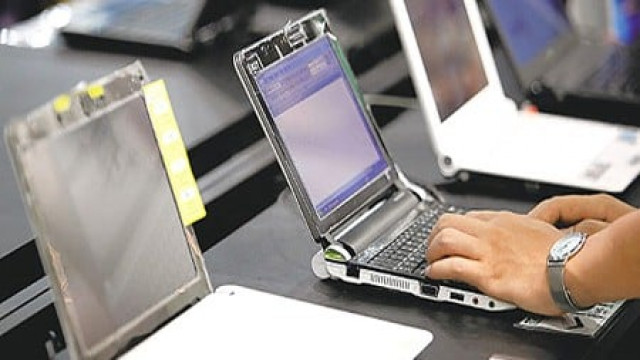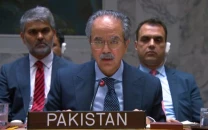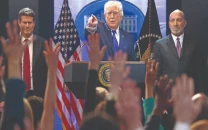Report urges US to go on offense on China hacking
Theft of software and other US-developed products was costing the American economy more than $300 billion each year.

Theft of software and other US-developed products was costing the American economy more than $300 billion each year. PHOTO: REUTERS
The 11-month study led by high-ranking former US officials said that theft of software and other US-developed products was costing the American economy more than $300 billion each year - as much as the United States sells to Asia.
"The scale of international theft of American intellectual property today, we believe, is unprecedented," commission co-chair Jon Huntsman, the former US ambassador to China and presidential candidate, told reporters.
He said that the United States would have the equivalent of 2.1 million more jobs if foreign intellectual property standards were enforced to their fullest.
The report called for tougher measures by the United States, including scrutinizing foreign companies' treatment of intellectual property when they seek approval for investments in the world's largest economy.
It also urged the United States to look at changing laws to allow "offensive cyber" -- chasing after hackers overseas to retrieve stolen information or even to physically disable their computers.
"You've got to have leverage in the game," Huntsman said. "IP theft needs to have consequences and with costs sufficiently high that state and corporate behavior and attitudes that support such theft are fundamentally changed."
The report -- a private initiative also co-chaired by Dennis Blair, the former director of national intelligence -- did not clearly recommend offensive cyber capabilities, noting the risk for unforeseen damage.
But it said that laws have not kept up to date with technology and that a purely defensive approach is likely to become "increasingly expensive and decreasingly effective."
"Almost all the advantages are on the side of the hacker; the current situation is not sustainable," it said.
The commission also recommended structural changes, including assigning the president's national security adviser to coordinate the US response to intellectual property theft.
The damning report comes ahead of talks between Presidents Barack Obama and Xi Jinping at a California resort on June 7-8, their first meeting since the Chinese leader took office.
Cyber issues are expected to be high on the agenda amid growing US accusations that China has waged a campaign of online espionage against US companies and the government.
In the past, China has defended its record and in turn accused the United States of unfair trading practices, such as denial of sensitive technologies and several high-profile rejections of Chinese investment bids.
Speaking earlier Wednesday at the Center for Strategic and International Studies, Chinese Ambassador to Washington Cui Tiankai said: "We should never politicize the economic issues because they will only make things more difficult to resolve."
Huntsman said he expected that Chinese officials would reject the report but voiced hope that it could provide ammunition for Chinese who support reform.
"They know that in order to reach out to the world, as many of the state-owned enterprises want to do, they are going to have to look and feel more like companies with global standards," Huntsman said.
Representative Mike Rogers, a Republican who heads the House Intelligence Committee, welcomed the report and said it showed the need for Congress to approve a law to let the government and companies share Internet information.
President Barack Obama's administration and civil liberties advocates oppose the law due to privacy concerns.
While the report listed China as the biggest culprit in intellectual property theft by far, commission member Slade Gorton, a former US senator, said that Russia, India and Venezuela were the next largest violators.



















COMMENTS
Comments are moderated and generally will be posted if they are on-topic and not abusive.
For more information, please see our Comments FAQ